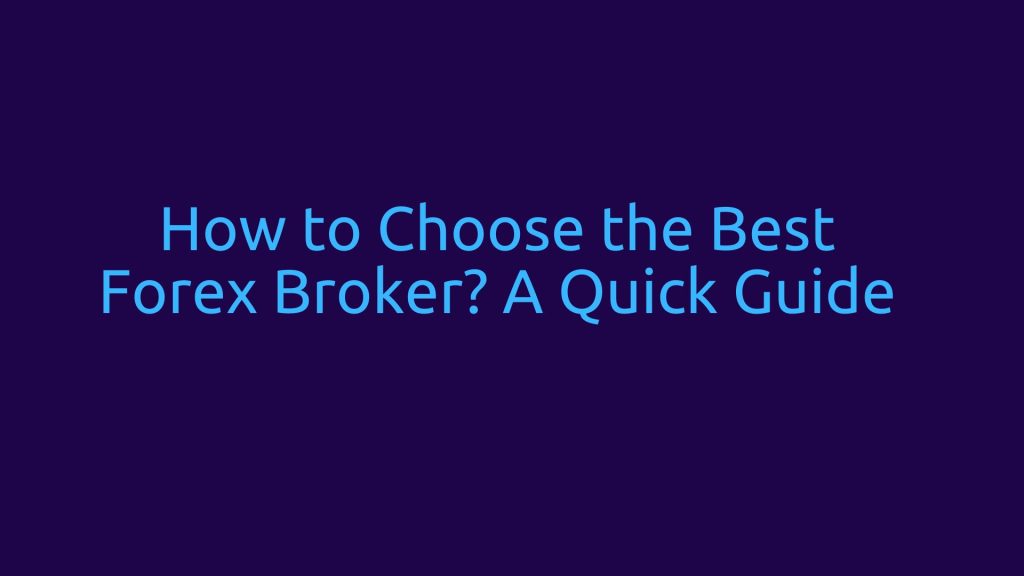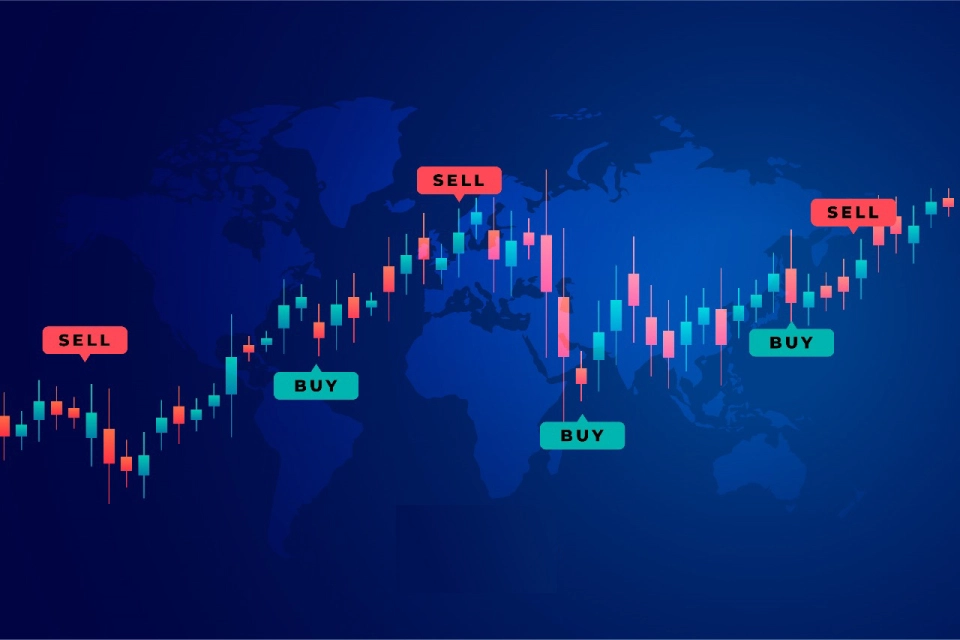Forex is the largest financial market in the world given that it turns over over $7.5 trillion each day. Selecting the right broker is as important as selecting an honest broker who would reciprocate with the same attitude toward your money.
What you get wrong will see you spend more and also bring you unnecessary complications while the right broker will assist you in trade with ease. Here, you can discover how to identify good brokers, which one charges what fees, how their services differ, and avoid common mistakes of novice traders. They help us dissect all that you should be aware of to arrive at the right decision on how to determine the best forex broker to work within your trading career.
Key Takeaways:
- Always check broker regulations to ensure a safer trading environment.
- Analyze spreads, fees, and commissions for optimal cost-effectiveness and transparency.
- Start small with demo accounts and reliable broker platforms first.
What is Forex Broker?
A forex broker may be defined as an organization that ensures that people who want to buy or sell the global currencies trade in the foreign exchange market can do so.
The broker makes the clients with the liquidity providers and their transactions are very fast. Professional intermediaries are endowed with control, favorable amenities, and resources in the type of education facilities and reasonable trading opportunities for buyers.
How to Choose the Best Forex Broker?
Do not invest your hard-earned money with the wrong forex broker. Consider the broker’s licensing, check fee structures like spreads and commissions, test trading platforms and confirm efficient customer support and security. Here is how one can find the best forex broker for any beginner to professional trader.
Regulatory Checks: Your First Line of Defense
Forex brokers who can be trusted must have all necessary licenses provided by financial regulators. In the United States alone a broker has to register with both the National Futures Association (NFA) and the Commodity Futures Trading Commission (CFTC).
How Do I Know If My Forex Broker Is Regulated?
Specifically, to verify the license of the forex broker, the License Number should be sought from the official site of the regulator. Famous bodies are; the FCA in the UK, ASIC in Australia, and the CFTC in the USA. Currently, valid brokers disclose their licensing information on the homepage and in other legal agreements.
Avoid all unregulated brokers that make unproven claims on the web. Before choosing a broker, always check the license number on the relevant regulation authority’s site and open an account.
Major Point: A regulated broker segregates your funds from his own and places your money in different accounts. This protects your investment if the broker faces financial trouble.
Thorough Analysis of Trading Costs and Fees
Brokers’ incomes are determined in two primary ways: through the spread and fees. The spread uses buying and selling prices to arrive at a single figure.
They have fixed spreads that did not change and variable spreads that change with the market conditions of the two currencies. Fixed spreads help you plan your costs better, but variable spreads might be cheaper during calm market times.
Example:
| Broker | Avg. EUR/USD Spread | Commission | Overnight Swap | Min. Deposit |
| Broker A | 1.2 pips | $0 | +0.8 / -0.5 pips | $100 |
| Broker B | 0.8 pips | $5 / lot | +0.6 / -0.3 pips | $200 |
| Broker C | 1.0 pips | $3 / lot | +0.7 / -0.4 pips | $300 |
Overnight Fees: If you keep trades open past market close, brokers charge swap fees. These fees change based on interest rate differences between the currencies you trade.
Platform Features and Tools
A good trading platform should feel easy to use and run smoothly. Most brokers offer MetaTrader 4 (MT4) or MetaTrader 5 (MT5), which many traders prefer. Look for these essential features:
- Clear buy and sell buttons
- Real-time price charts
- Technical analysis tools
- Mobile trading apps
- Fast trade execution
Major Point: Test the broker’s platform with a demo account before trading real money. This helps you check if it meets your needs.
Account Types and Minimum Deposits
Brokers usually offer different account types:
- Standard accounts: Basic features with wider spreads but no commission
- ECN accounts: Tighter spreads but with commission fees
- Professional accounts: Better conditions for high-volume traders
- Islamic accounts: No swap fees for religious reasons
Starting Amount: Many brokers let you open an account with $100-$500. Some offer micro accounts for just $10. Choose an amount that fits your budget but gives you enough room to trade properly.
Customer Support Quality
Good customer service can save you when technical issues arise. Check if the broker offers:
- 24/5 support (markets trade Sunday night through Friday afternoon)
- Multiple contact methods (chat, phone, email)
- Help in your language
- Fast response times
Major Point: Test customer service before opening an account. Send them questions and see how quickly and they respond.
Deposit and Withdrawal Options
Look for brokers that offer convenient ways to move your money:
- Credit/debit cards
- Bank transfers
- E-wallets like PayPal or Skrill
- Quick processing times
- Low or no fees for transactions
Safety Features: The best brokers use encryption to protect your financial information and require two-factor authentication for account access.
Educational Resources
Good brokers help you learn and improve:
- Trading guides for beginners
- Video tutorials
- Market analysis
- Trading webinars
- Economic calendars
Major Point: Free education resources show the broker wants long-term successful clients, not just quick profits.
The broker you choose impacts your trading success. Take time to compare several brokers using these criteria. Start with a demo account to test their service, then start small with real money.
FAQs
What is the smallest amount required to begin trading forex?
All reputable brokers allow initial deposits to range between $100-$500. Some offer micro accounts starting at $10 for beginners to practice trading.
How do I verify if a forex broker is legitimate?
Check the broker’s license number on official regulatory websites like FCA, ASIC, or CFTC. Legitimate brokers display these prominently.
What’s the difference between fixed and variable spreads?
Fixed spreads stay constant regardless of market conditions. Variable spreads change with market volatility, potentially offering lower trading costs.
How flexible should I be allowed to withdraw my money from a forex broker?
Yes, regulated brokers take 1- 3 business days to process withdrawals. They might require identity verification for security purposes.
Final Thoughts
Ultimately, learning how to choose the best forex broker shapes your trading journey. Verify each broker’s regulatory status, analyze spreads, compare overall commissions, and explore platform reliability. Start with a demo account to gauge performance and support. Above all, pick a broker that prioritizes education, transparent fees, and client security for long-term success.



